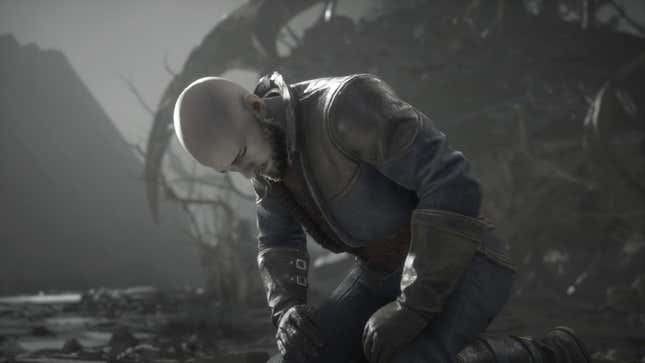
Electronic Arts CEO Andrew Wilson recently spoke on an earnings call about the underperformance of Dragon Age: The Veilguard, which reportedly reached 1.5 million players. This was apparently around half of what EA was projecting, but given the game was in development hell for a decade and was a sequel to a game that came out before millions of potential players had fully developed frontal lobes, it wasn’t too surprising. Wilson, however, is convinced the reason the long-awaited RPG sold fewer copies than the company wanted is that it wasn’t live-servicey enough. That’s not the sentiment BioWare fans want to hear with the development of Mass Effect 5 still on the horizon.
On the earnings call (thanks PC Gamer), Wilson’s answer as to “why” the game underperformed conveyed a deep lack of introspection on the effects that a long and difficult development had on Dragon Age. It also seemed altogether disconnected from the video game industry at large.
“In order to break beyond the core audience, games need to directly connect to the evolving demands of players who increasingly seek shared-world features and deeper engagement alongside high-quality narratives in this beloved category,” Wilson said. “Dragon Age had a high-quality launch and was well-reviewed by critics and those who played; however, it did not resonate with a broad enough audience in this highly competitive market.”
In summary, he thinks Dragon Age would have done better if it was a live-service game, rather than the story-driven single-player RPG BioWare excels in creating. Multiple shifts in direction weighed down The Veilguard’s 10-year-long development cycle. One iteration was an online multiplayer game with repeatable levels and all the live-service stuff nobody asked for in a BioWare game, but the studio made a complete pivot after the critical and commercial failure of Anthem, the RPG studio’s looter shooter detour that became a cautionary tale for how forcing live-service features into studios not built to make those games will only ever have diminishing returns.
There’s an odd dissonance in Wilson saying The Veilguard’s problem is that it didn’t appeal to people looking for another forever game to add to the growing list of competing live-service titles on the market. If live service were in and of itself a universal selling point, we wouldn’t be seeing these games being sent out to die on the regular. Baldur’s Gate 3, a dense single-player RPG that builds upon the foundation of BioWare’s old style, became one of the biggest games of the past decade. Obviously, the children don’t simply yearn for the live-service mines.
Dragon Age: The Veilguard’s problems were that it was a continuation of a 10-year-old cliffhanger that was not newcomer-friendly, was met with good but not universally glowing reviews, and was only marketed in earnest for four months. It is a miracle that BioWare was able to right the ship after a decade of publisher-mandated pivots, and the reward has been a complete restructuring of a studio, excising people foundational to its legacy.
This kind of blinder-wearing isn’t new for EA, though. The company notoriously claimed single-player games were “finished,” then changed its tune when one of its own studios had a recent success story in Respawn’s Star Wars Jedi games, despite its competitors releasing critically and commercially successful single-player games the entire time. So it’s not surprising that Wilson would attribute The Veilguard’s underperforming to something EA can only contextualize in its own catalog. Baldur’s Gate 3 might as well not have happened if EA didn’t make it.
All of this has me worried about what it could mean for Mass Effect 5. The writing is on the wall now that BioWare has one more chance to right the ship, and since moderate successes aren’t enough anymore, it has to be a cultural moment on the scale of the original sci-fi trilogy. Hearing that Wilson thinks the key to success is repeating proven mistakes should scare any Mass Effect fan. Because if BioWare is once again forced to capitulate to something it isn’t built for, the series and studio’s legacies will continue to be diminished until there’s nothing left.
.